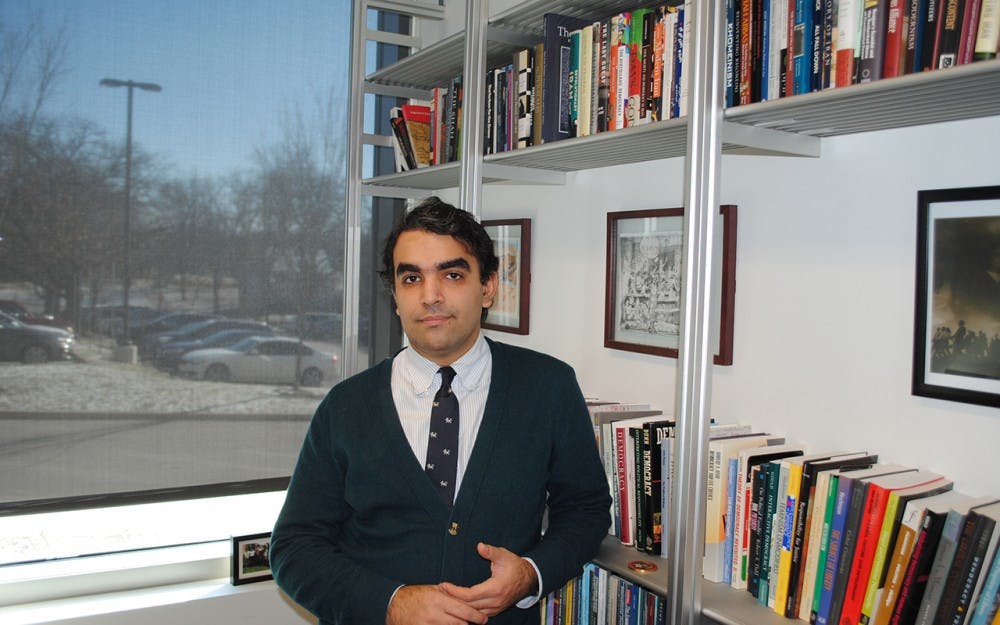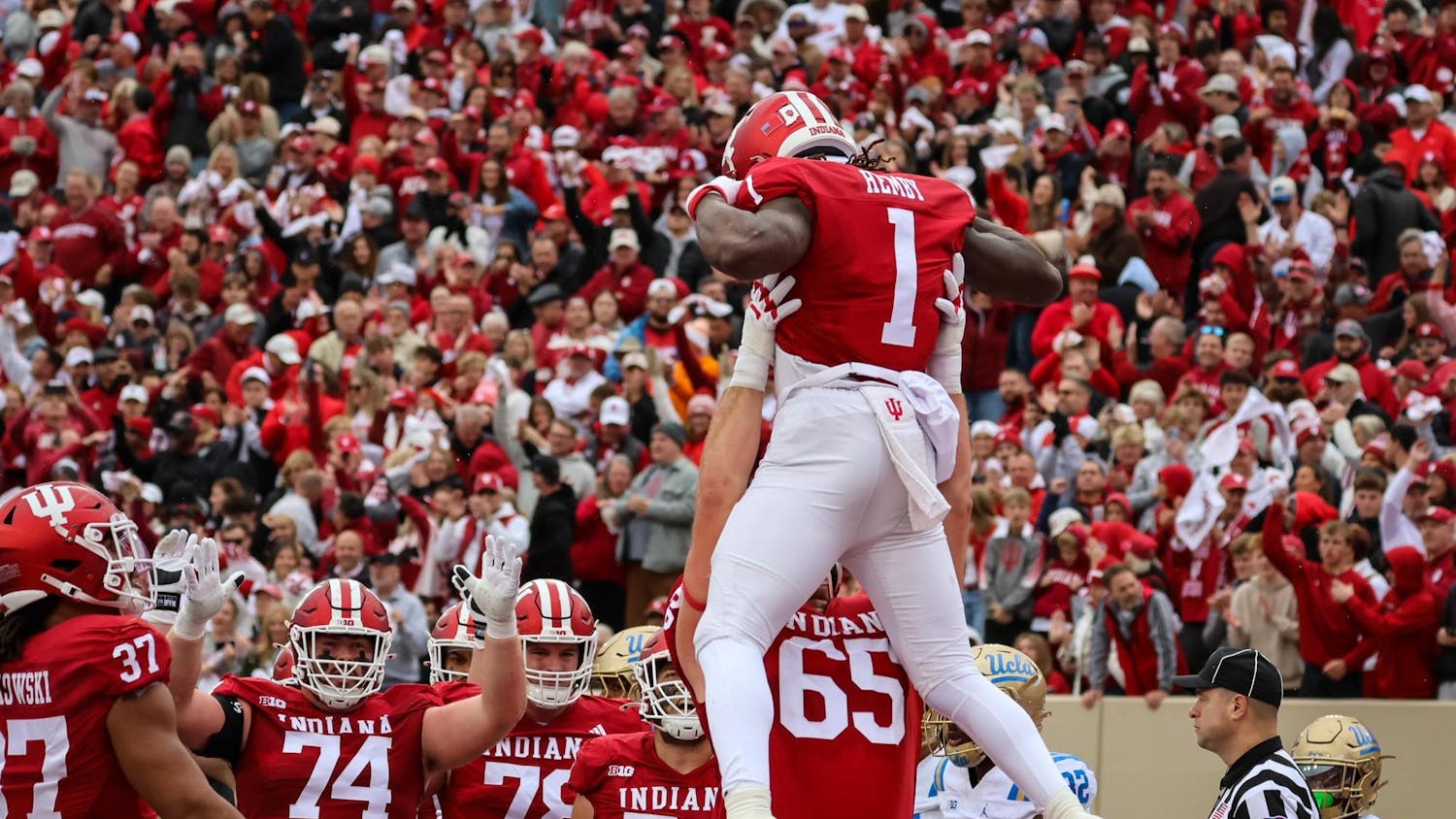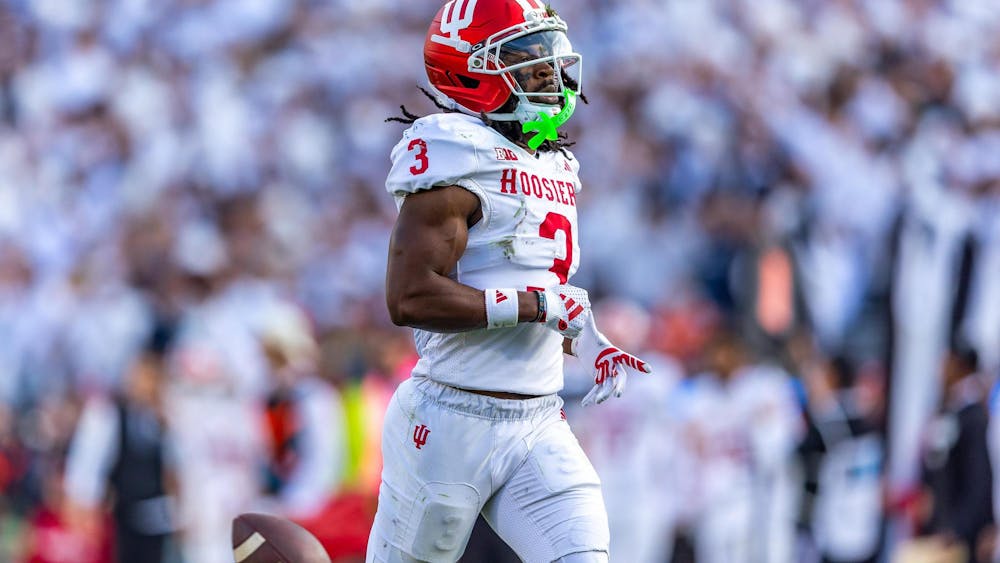After 10 years, two children and adopting American culture, Hussein Banai became a naturalized citizen this January. The following week President Trump’s executive order went into effect, which banned Iranians and green card holders from Iran and six other countries from entering to the United States.
Banai is an assistant professor of international studies and specializes in the Middle East with focuses on diplomatic and democratic theory. He said he has studied nationalism and understands the appeals of establishing a national identity, but he warns against it.
He was born in Iran, moved to Canada when he was 15 and through his citizenship naturalized from Canada. He said the lack of clarity and contempt behind the executive order left him with a lot of concerns about the rise of nationalism in part because of his Iranian heritage. Nationalism refers to the patriotic sense of identity that creates a sense of duty or obligation to one’s nation. Banai said he was nervous because nationalism is usually accompanied by a sense of cultural or social superiority.
“I think it’s the most incoherent idea,” Banai said. “I think it’s the most dangerous idea in the world because it creates the illusion of belonging to a coherent cultural or historical entity, and that’s not the case.”
What Banai described is exclusive nationalism, said professor Padriac Kenney. Kenney, a professor of history and international studies, said there is also inclusive nationalism. He said celebrations like the Fourth of July and the Super Bowl are examples of inclusive nationalism. He said it can be positive because it’s welcoming to others if they can recognize and accept the national identity.
However, Kenney said he cannot see the importance of exclusive nationalism.
“If you say Syrians aren’t welcome to come, then it’s easy to say Syrians already here shouldn’t be here,” he said. “It’s a cowardly perspective.”
Banai said this perspective creates a sense of community that makes it difficult to include others who don’t fit the mold. He said those who have grown up and lived in the same place their whole life have an easier time creating a solid sense of identity.
“This is where elites, and I call them entrepreneurs of identity politics, come into view,” Banai said. “People who start to package political ideas of political programs in ways that communicate that your solid identity is in danger or your sense of self is being undermined by these other people who don’t look like you, sound like you and don’t come from places that are familiar to you.”
For Banai, this is where nationalism usually crosses the line and becomes dangerous. While referring to the travel or immigrant ban, Banai pointed to himself as an example of the failures of nationalism and identity politics.
“Someone like me, who’s of Iranian origin, who has lived in Canada and the United States and the United Kingdom, gone to school in Scotland and Switzerland — I couldn’t begin to tell you what my Iranian identity meant to me compared to these other things,” he said.
Banai said his Iranian and Muslim heritages were unjustly used to define and marginalize him when he is not religious and does not identify as solely Iranian.
“I don’t consider myself a Muslim,” Banai said. “I don’t consider myself a Christian, I don’t consider myself a Jew. I don’t have a religious identity. That’s never been prominent in my life, ever.”
He said a blanket was blindly and unjustly placed over a diverse group in the name of nationalism, and this is happening because some people want to return to a particular identity or time.
“There are a lot of signals being sent out there that there was once a solid American identity and that we should return to it,” Banai said. “It has become sullied, it has become to fractious and too colored over the course of the last 50 years or so. Exactly the same time as the civil rights movement, no coincident there.”
Banai said clinging to an original and single American identity are utter nonsense. He would understand if Americans were wishing for a better identity, he said, but they are not. It flies in the face of history and reason to cling to the past because the U.S. was never a nation of one firm identity he said.
“It has always been multiple and colorful and cacophonous,” he said. “We’ve had social conflict and civil strife like the Civil War era and it was precisely because people wanted to uphold one set of solid identity over another.”
He said history cannot be ignored.
“The legacy of nationalism is in the graveyards of Europe,” Banai said. “Every mass grave has been dug and filled in the name of a particular identity, oftentimes a national identity.”
To avoid the traps of nationalism people have to educate, he said. There are many ways to avoid the fuzzy comforts of community, but we must always keep thinking of these methods and more ways, Banai said.
“First of all one has to strive as much as possible to expose oneself to a multiplicity of ways of life to reach out to people,” he said. “That goes without saying.”
The next thing to keep in mind is political elites want to perpetuate nationalism for their own selfish interests, he said.
The cliches are all there, he said. Everyone reads what they want to read to confirm what they already believe. However, he said reality has a way of seeping through the bubbles we create.
“Those bubbles that existed in the early 20th century resulted in the major catastrophic war,” he said. “And people said ‘OK, I don’t have to listen to this bubble anymore’ or it was wrong for me to be cloistered like that.”
If we don’t learn the dangers of nationalism, new bubbles based along nationalism could be created, he said.
“I hope it doesn’t result in wars,” Banai said.
In a previous version of this story, Banai was identified as an already naturalized citizen which was incorrect. In fact, he has yet to take the oath, although he has passed all the tests and he will become a citizen in a week. The IDS regrets this error.






